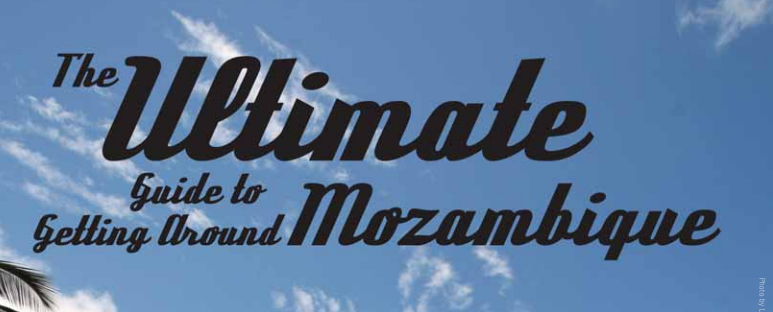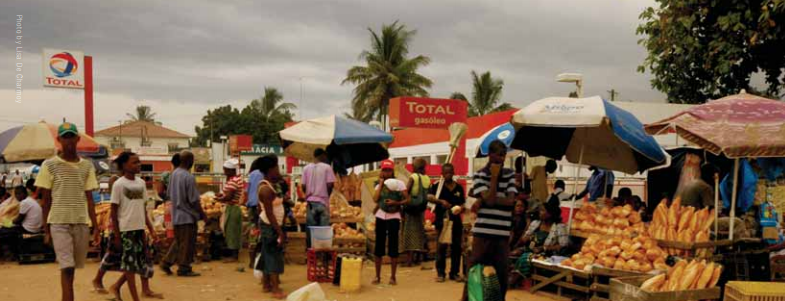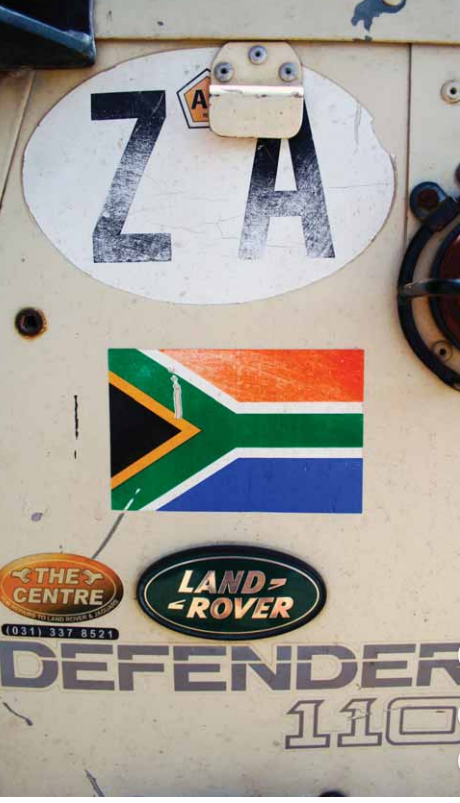
NB – While every effort has been made to make sure that the details in this article are current and accurate according to the rules and laws in Mozambique at the time of print, there is a chance that some rules and laws have changed. Please use this purely as a guideline.
Mozambique is probably one of the most popular spearfishing holiday destinations in Southern Africa. It is relatively close and accessible, with most spots only a day or two’s drive. But it’s the warm palm fringed beaches with beautiful clean water that is the real attraction. And that’s without even looking beneath the surface where large pelagics and dream trophy fish are plentiful, fueling the dreams and aspirations of spearfishermen from all over the world. But, like travelling in any foreign country, there are rules and customs that you need to know or you could land up on the wrong side of the law – or at very least find your self arguing with someone when you should be sitting back, enjoying a beer under a palm tree. Added to that, Mozambique is also plagued by typical African 3rd world corruption, and the traffic cops are notorious scoundrels. So, do whatever you can to obey the laws and stay out of trouble.

Unfortunately travelling and diving in Mozambique for some has become too arduous. Sometimes it’s the police or marine officials
looking for a quick buck, other times it is because the person was just plain unprepared and a perfectly good trip was ruined. Worse still is the
attitude that Mozambique owes you something because you are bringing in ‘business’. This is a sure fire way to get the cash flying out your
wallet and some irate official in your face and belongings. Rather adopt the attitude that you are a guest and are privileged to be sharing
their great country.
Here are some tips and things to take note of to prepare yourself for your next Mozambique adventure.
If you are stopped by police, never lose your temper and always take as long as you can when being searched. You will probably get asked to leave because of taking too long to open the trailer. If you know you are in the right and getting fleeced, ask to go to the police station. This is a last resort as it could take up even more time, but in most cases, they tend to back off. The longer you hold them up, the less time they have to catch someone else.
If you have broken the law, just be co-operative and don’t try fight with them, you will not win. Insist on a written official fine, try pay it at the local police station and get an official receipt. If the charge is not legitimate, or you suspect foul play, call the SA high Commissioner in Maputo (00 258 21 24 3000 or 00 258 84 30 44 600 after hours).
Only travel with 200 Mets in your wallet and no cards (all other cash and cards hidden away).
If you are stopped and the official does not have a name badge, be on your toes and never show any negative emotion. Just play happy-go-lucky and as jovial as possible. Remember to take your time.
Never give your passport to anyone and try and get them to accept certified copies. Once the traffic officer has your drivers license and/or passport, you will have to part with cash before getting it back. Try giving them a certified copy instead, but that does not always work as it is not your ID number they are after. Also avoid using locals to assist with border assistance, don’t give them your documents and rather just go stand in the queue yourself. Customs officials are not allowed to receive money, but helpers are, so they work together. This means that together they will go through your belongings to find something to make you pay, whereas the customs official on his own is less likely to go through your belongings. However, be very courteous to the ‘runners’ or helpers as rubbing
them up the wrong way could result in them getting their friends to pay extra special attention to you. So when they come up and insist
on helping just smile and say no thank you, no matter how much they badger you.
Put on your ‘poker face’. Naturally you will want to be getting through the border post as quickly as possible, but don’t let them know that. Again, take your time, don’t get flustered or agitated. That’s when they start unpacking your car. If they make you unpack, do it very slowly, stop for a drink … offer them one, and before you know it they have ushered you on to find easier prey. Mozambique has also started to impose import duties on fuel and other taxable commodities. If you are taking fuel, make sure you hide it well and leave an empty fuel can or two on the deck of the boat or in plain sight. A good tactic is, when asked where your fuel is, to say you have none and to ask them where you can get fuel from. Play real dumb. They are also enforcing duties on alcohol and foods, so don’t leave these items in plain sight or in shopping bags. There is an allowance of $200 of groceries per person so have a few cash slips available to this effect.
If you are taking anything of high value or electronic equipment through, declare the items. Items like laptops must be declared AND TAKE NOTE, fill in a separate form for each person. A great example: if you enter Mozambique with a friend and you declared your two laptops on one form, then you exit 3 days before your friend from one border post, you might have no problem. Your friend then exits from another border 3 days later, customs notice 2 laptops on the form and asks him where the other laptop is. No amount of explanations will explain his way out of the problem of the missing laptop on the form, and
they will claim that you have sold it or left it in Mozambique and want you to pay a duty on it.
The speed limit on the open road is 100km/h, most of the speed traps are in the little towns that are found every few km along the main roads. Here the speed will drop to 60km/h and even 40km/h. Make sure you slow down at each of these towns, even if you don’t see a traffic sign, as sometimes there just aren’t any or they park a truck or bus to obscure the sign. Also make sure that your passengers in the back seats have their safety belts on and are not asleep, yes, we have been ‘fined’ for a chap sleeping on the back seat. Recently the Mozambiquan cops have been clamping down on passengers in trucks that have a cab and half. Check your license disc to see how many passengers the vehicle is allowed. Normally ‘Cab & Half’ only allows 2 persons, in which case you will be fined if you have an additional person in the cab. Seats are also only for passengers, so avoid luggage on the open seats if possible.
On the spearfishing, fishing and boating side, make sure you have all your permits in place. Only ever get your permits from the place you are staying at as, in many cases, the local Marine Police will not accept licenses from elsewhere even if it’s in the same province and is valid there. They will want you to purchase the license from them, and make sure you get a receipt for each license. If you have travelled from elsewhere and already have a license, go and get the thumbs up
from the local ‘Maritimo’ (Marine Officer) before getting in the water.
You will need a boat license, rod license and fishing license, including spearfishing and trophy fish license, if you are going to take Sailfish and Marlin. (be very clear with the Marine officerthat you are spearfishing) Make sure you ask the Marine Officer what you can and can’t shoot, and how many fish you are allowed etc. You need to do this as their rules can change at any time, so get their version in the beginning. Get the guy’s name and even try get his cell number so that you can call him in the event that you are stopped and questioned by another Marine Officer who is trying to find fault with your actions and is using a different set of rules.
If you have a boat and a handful of divers you will be in for about R1000 worth of licenses and fees, so budget for this. The consequences of breaking the law in
Mozambique are heavy, and the police or marine officers will often throw the whole book at you if
they can. So keep your ‘nose clean’ and make sure
you know the applicable laws.
HERE IS A LIST OF ITEMS AND PRACTICES THAT ARE ESSENTIAL WHEN TRAVELLING In MOZAMBIQUE:
• Valid passport
• Original vehicle registration papers: Note that a certified copy is acceptable at the border post. Persons whose vehicles are still being financed by the bank will not have original vehicle registration papers. They would therefore use the vehicle license papers (where the renewal disk is cut out yearly), or vehicle license papers must be accompanied with a letter from the bank giving you authorization to take the vehicle across the border, including dates. Both the bank letter and license papers should be signed by a Commissioner of Oaths.
• If you are not the registered owner of the vehicle: You must carry an affidavit from the police giving you authorisation from the owner / financial institution to take the vehicle abroad.
• Valid driver’s license.
• Temporary vehicle Import Permit (compulsory): DA341 form – you get this at the Mozambiquan border post.
• Immigration Fees: approx R17.50 per person
– you get this at the Mozambiquan border post.
• Declaration Form for Vehicle: approx R50
– you get this at the Mozambiquan border post.
• Third-Party Insurance (compulsory):
Available at any AA Accredited Sales Agent store; R160 (valid for 30 days) or from the agents at the border posts. Make sure you get the right paper
work.
• Red Warning Triangles: 1 set required (does not need to be displayed on car)
• Reflective Jacket: If more than two people are travelling in the car, then two jackets will be required (to be used when changing a tyre, at an accident scene, or if loading)
• Yellow and Blue Mozambique Warning Triangle: Two stickers (blue square with yellow triangle inside) required if towing a trailer, one inthe front of the vehicle (on the bumper) and one on the rear of the trailer.
• ZA Sticker: Advisable
OTHER TRAVEL TIPS
If you find yourself travelling at night, look out for vehicles with one or no lights, often they will travel with the left hand indicator flashing so you know
where they are.
Locals use tree branches as warning triangles, this is usually fine in daylight hours but can be a problem at night. Sometimes they also mark big
pot holes, so always keep an eye out for branches in the road and don’t just think that it fell off a truck or something, there is usually a reason they
are there.
If you have luggage loaded on your boat, tie all of it down and put a cover over the boat as well. When you travel through heavy traffic and slow down, your trailer or boat becomes a smorgasbord of opportunity to petty thieves. If possible, it is
advisable to have someone on lookout to check that no one is getting on the boat, especially when
going through Maputo.
If you are travelling in convoy, get a set of “walkietalkies’. Having two way radio’s are great for warning about speed traps etc. and are cheaper
than cell phone roaming. Try get ones with more than one kilometre range.
Carry spares… of everything you can. Wheel bearings, bulbs, fan belts, fuses etc. and make sure you have good spare tires.
Make certified copies of all important paper work and passports etc. Have a separate folder for these and even have someone else carry them in a separate vehicle if you are travelling in convoy.
Do the same with a spare set of car keys, if you lose yours or take your fancy chipped electronic key for a swim you will have a hard time finding a
replacement.
Either get a Mozambiquan sim card or have international roaming on at least one cell phone in your group. Make sure you have a couple ofcontact numbers, like the lodge you are going to and maybe some lodges on your route in case you need to stop over or need assistance.
The fuel can be dodgy, so either have very good filters on your boat, or get a funnel that is a filter and moisture separator. Most big boating shops will have these. The cost of fuel will also increase the further away you get from Maputo, so fill up there if you can. (if you are going through Swaziland the
fuel is cheaper, sometimes even cheaper than SA) Depending on where you are going, the exchangerate will vary slightly. You will be able to pay
with Rands or US Dollars, usually at a slightly more expensive exchange rate. Most fuel stations will accept Rands or Dollars, but at their ‘special’ rates. It is best
to find out from the lodge or place you are staying at what the going rate is just before leaving. If there is a big difference in this exchange to what you can get
from a genuine exchange or the ‘cash guys’ (there are runners at most petrol stations and border posts) then it might be an idea to exchange some cash. Make sureyour rate is good and check the money carefully. Don’t exchange large sums on the street, that’s just asking for trouble.
USEFUL PHRASES
Good morning: Bom dia
Good evening: Boa noite
How much: Quanto custa
I don’t understand: Nao compreendo
Thank you: Obrigado (m) Obrigada (f)
Goodbye: Adeus
Sorry: Desculpe
Please: Se faz favor
Money: Dinheiro
Receipt: Recibo
For some, travelling in Mozambique has become too taxing and has caused them to stop travelling there. This doesn’t have to be the case, if you accept the
challenges, prepare yourself and don’t let the little things ruin your holiday. Find that palm tree and an ice cold Laurentina (local beer) and everything will be just
perfect. Especially if you’re relaxing after an epic days spearfishing, there are few things in life that beat that. So, pack those bags, organise yourself and go have
that adventure you have always dreamed of.

